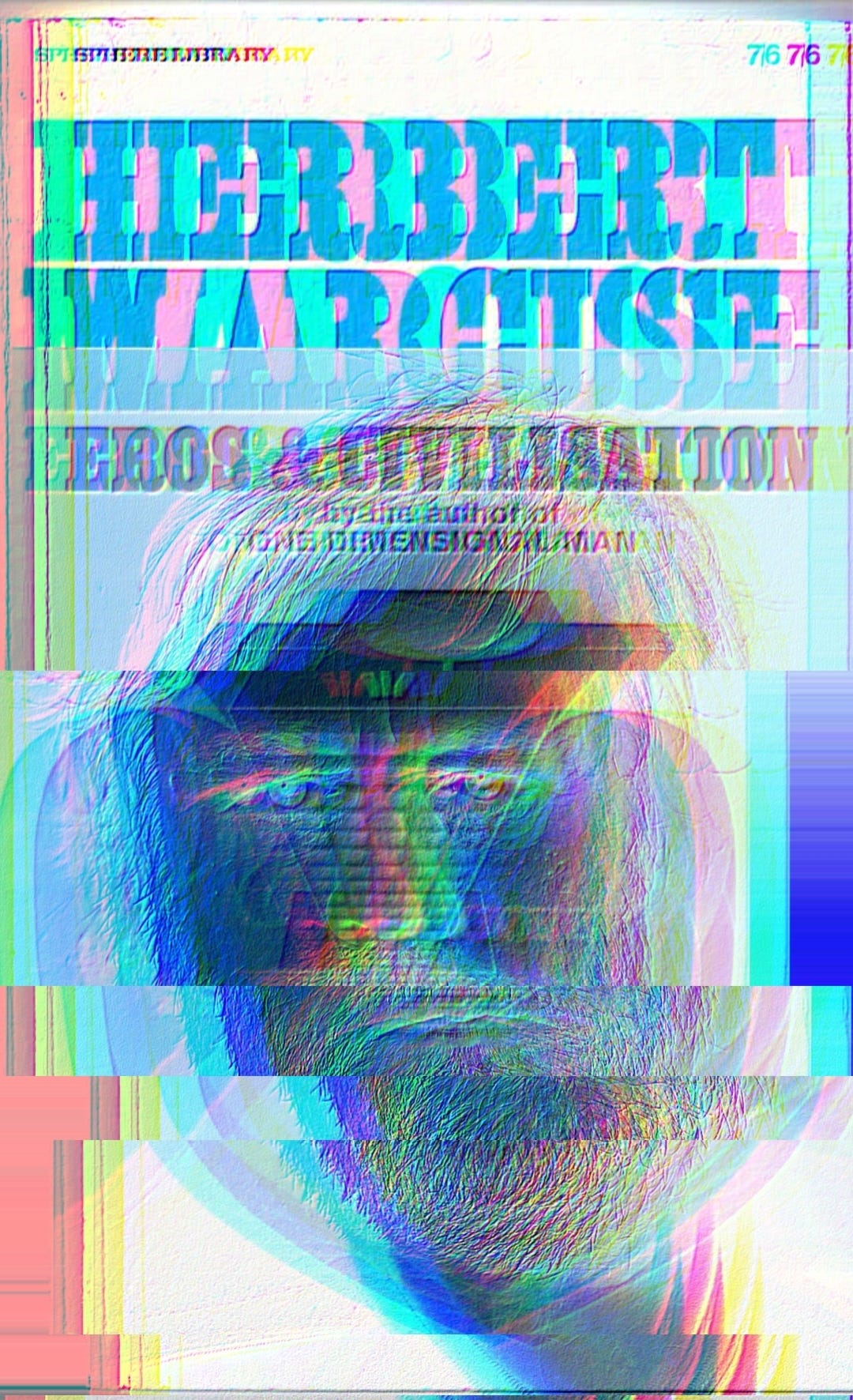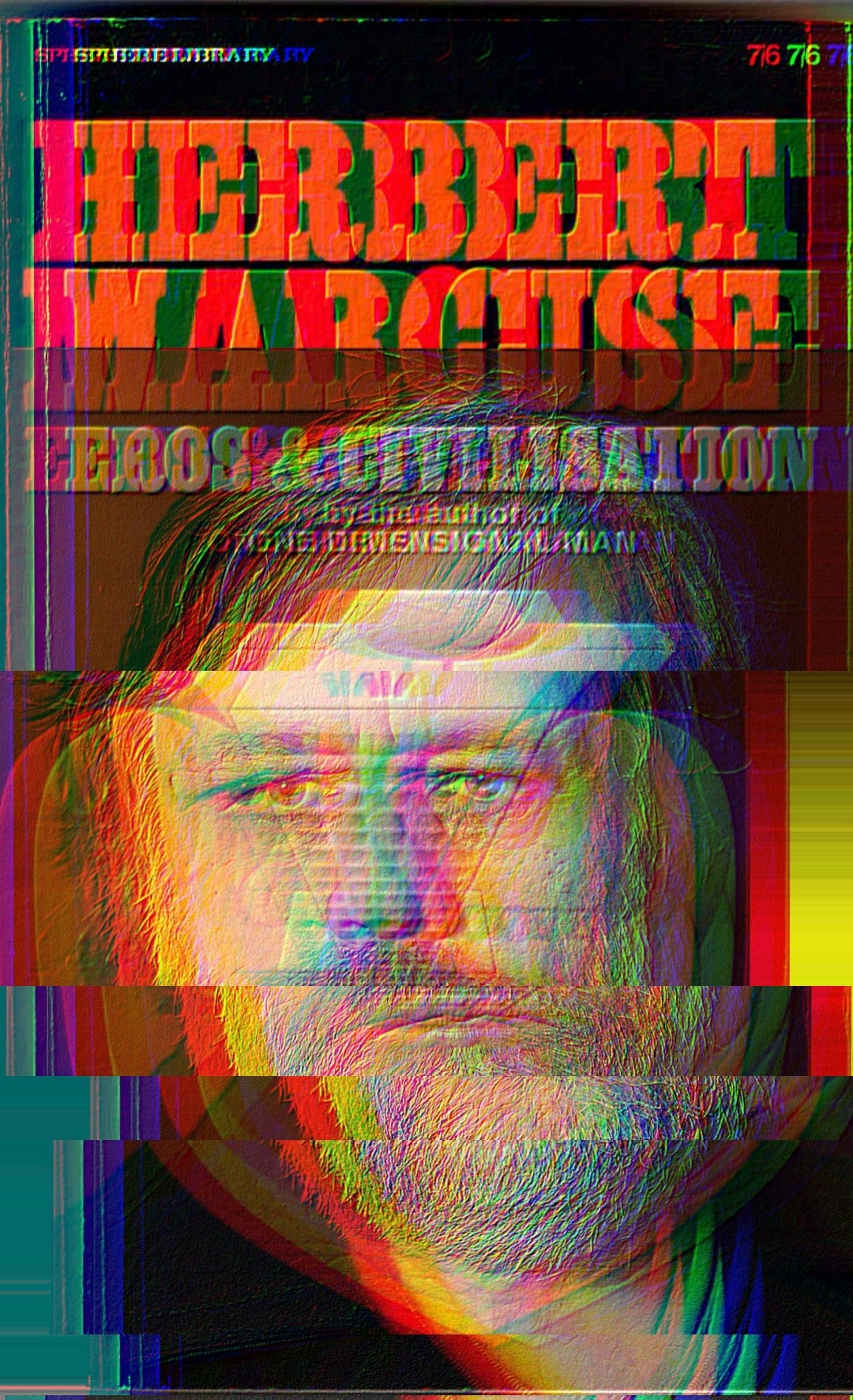We all have some form of jouissance: which is any act of engaging in producing excess-desire, that is, to go beyond ourselves and our wants and needs to experience an enjoyment which emerges out of pain, a deeply sadomasochistic drive which also makes us feel guilty but yet we compulsively repeat the behaviour, to get more guilt, to get more enjoyment. This is how surplus enjoyment (jouissance, plus-de-jouir) works: the more I suffer in guilt and shame and pain, the more I sacrifice to the enjoyment.
The more I suffer, the more I can enjoy.
These manifestations of jouissance (death drive) we call Symptoms.
I, for instance, love to binge eat and enjoy the psychoactive compound found in Cannabis, THC, for its many euphoric and anaesthetic properties. I consume precisely too much, I draw out an excess, and come to enjoy the very guilt instilled in the behaviour. This is what is meant by the psychoanalytic expression surplus-enjoyment. When I eat so much it hurts, and I come to feel shame and regret ("why did I eat so fucking much") which inevitably leads to me returning to the same behaviours which leads to regret and shame.
We have this 'death drive' (A concept from Freud developed in Beyond the Pleasure Principle) but the point is it must go somewhere. My Marxist claim is Capitalism redirects our death drive towards work. Which manifests in the self-entrepreneur and sigma grindset bro, who devote their body and mind to producing capital and working even to death. This is the claim made by Frankfurt School Critical Theorist Herbert Marcuse in his Eros and Civilization.
Capitalism instils in us a deep sense of guilt and redirects it back into the circuit of libidinal economy (Lyotard) - basically, we feel guilty, we buy things to feel better, we feel guilty about buying these things and so on and so on.
Even worse, the situation today is that Capitalism will now sell the solution to your guilt within the commodity or product.
Which is why today the commodity from the fast food place or fast fashion shop must add into the purchase this element of "for every £1 you spend, x amount goes to charity" or "these products are carbon natural, pro-farm, anti-slavery etc" so you not only get your product but the bonus of having your guilt alleviated with it.
This is what we truly buy, the option to enjoy guilt-free. We are compelled to enjoy everything without mercy. Always be enjoying. Work so you can go back to enjoying.
The only emancipatory stance today is the one provided in the classic literature of Bartleby, the Scrivener. Who, a depressed, lonely worker who ends up avoiding all communication and in the work place becomes totally ineffective. You cannot ask him to do anything, he simply replies: "I Would Prefer Not To." to which, the employers and bosses have no real answer to, he ends up sitting on the stairs stuck in one place, repeating this to anyone who asks anything of him, and dies in that very spot.
We must imagine ourselves saying "I would prefer not to" to the incessant demands of both pervasive, incessant guilt, and the injunction to constantly enjoy.
Only by saying no, enough, I'd rather not, we find ourselves divesting energy and desire away from the system which compels and oppresses us, and we can begin the search for redirecting that energy into projects far more worthwhile. To our own deaths.
The point of death drive is not so much something like a suicidal symptom, it is not so much towards-death (the very Heideggerian notion which constitutes Being) but it is the drive (trieb) which is more powerful than our instinct fear of death (which Schopenhauer calls Wille-zum-leben, will-to-life). We supersede our fear of death to engage in these activities.
(Sublime Object of Ideology, Surplus-Enjoyment: A Guide For The Non-Perplexed, Enjoy Your Symptom! Jacques Lacan in Hollywood and Out, et cetera.)
As capitalist subjects - consumers, or Burroughsian figures of control-addicts/debtor-addicts - our fear of death is superseded by a drive governed by surplus-enjoyment. We could call this the cultural logic (something akin to a social psychology which mimics the Hegelian concept of Geiste - Both Spirit and Mind, like Zeitgeist - Spirit of the Time - such as the mass behaviours, rituals and traditions that mark a certain epoch) of capitalism's superego; an invisible symbolic order of rules both explicit and implicit of how we should govern our very lives and activities.
To fully recognise our symptoms not as personal problems or faults - which leads to the immediate circuit of feeling guilt and shame which produces enjoyment which causes us to reify our symptoms - but as the results of systems and structures which constrict, restrict, and control our lives (and deaths) in almost every way.
(Capitalist Realism; Is there no alternative?)
Economic. Political. Social. Ideological.
Everything from our personal life and habits, to our working life and activities, is fully absorbed and appropriated by a system of Global Capital.
(Empire)
All our time and energy is inserted and invested into this global (desiring/abstract-)machine, via libidinal-political economy (your socio-economic status, political activity such as voting, your consumption and participation in Markets and purchasing of commodities). Via cybernetic mainframes (social media, technology, digital information and entertainment circuits which take your personal info and data and sell you adverts and content, and control the media and content you see) which are often simply referred to as algorithms.
(The Cybernetic Hypothesis, and Capitalism & Schizophrenia; Anti-Oedipus)
In some cases, even supposed 'revolutionary activity' is co-opted back into the system of capital. One thinks of the core example of the Pepsi advert showcasing Kylie Jenner offering a can of Pepsi to police officers amidst a riot.
What are we to do?
Redirect our desire and energy towards emancipation.
This means, understanding what is necessary in order to escape the (semiotic) flows of Capital.
Referring to the theories of the left, such as Marxism and Anarchism, can provide the concepts (tools and weapons), scientific explanation, and platforms for organising and acting in ways which bring out the existence of entirely new values and frameworks.
Ultimately, those values are up to the individual, who may choose to give themselves to a social cause, or even remain egoistically driven (here I refer to Max Stirner's Egoism of Der Einzige und sein Eigentum) but nevertheless invoking something other than the logic of Capital.
To recognise the paradox of one's Guilt, to recognise our Symptoms, to analyse the Commodity Form, to produce forms of social collectivity, social relations, and organisations which bring communities together over something other than Capital.
To explore new horizons. To go to places previously unfathomable. To question reality and invoke the impossible. To demand the impossible. And to go about producing the impossible. That is, to completely shake the foundations of what is possible, to reveal what appears natural and necessary to be contingent.


